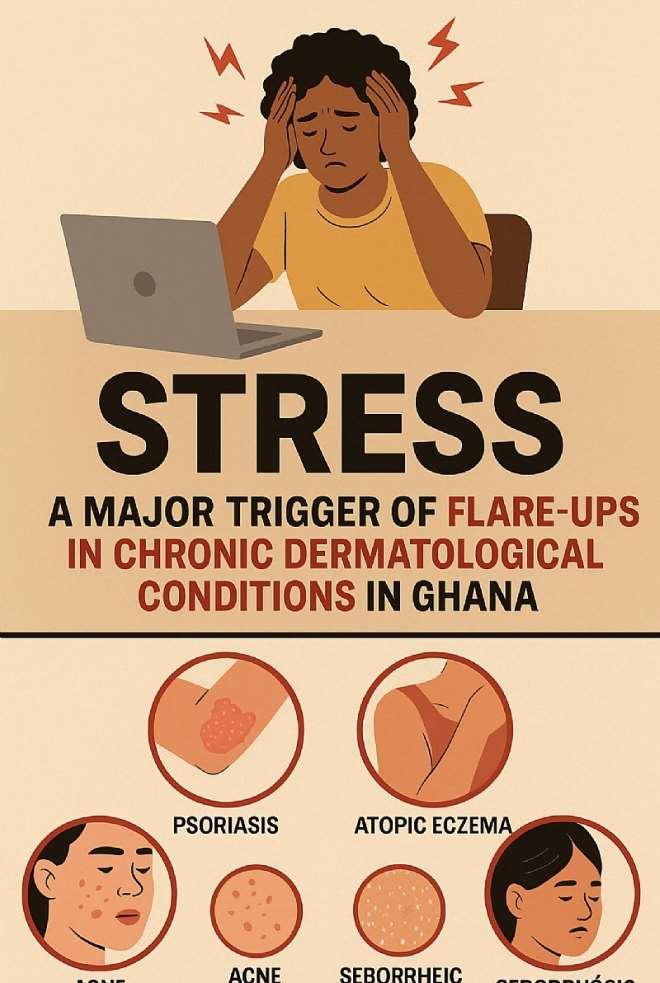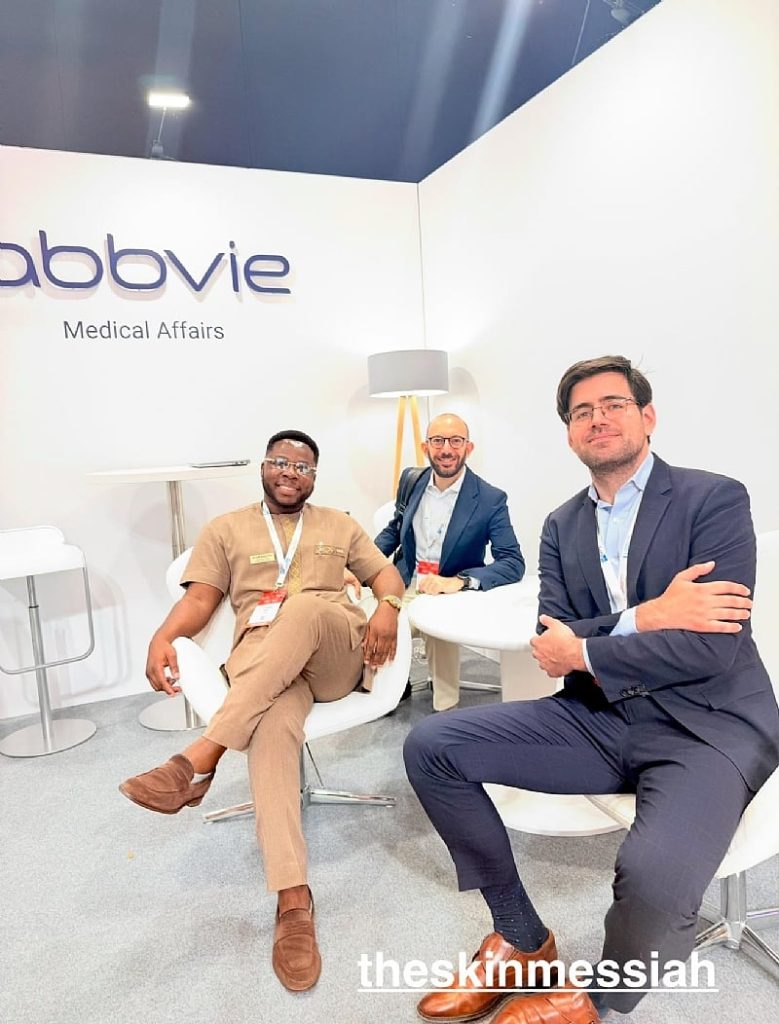
Dr. Kofi Ansah Brifo, a member of the International Society of Dermatology (ISD), has reaffirmed that scientific research has long confirmed the harmful effects of stress on skin health, explaining that stress activates the hypothalamic-pituitary-adrenal (HPA) axis, which results in the release of cortisol and pro-inflammatory mediators that damage the skin barrier, disrupt immune function, and slow the healing process.
“In Ghana, patients battling psoriasis often see plaques worsen during job losses, relationship breakdowns, or academic pressures,” Dr. Brifo, who also serves as the Resident Dermatologist at Osu Rabito Clinic, told the Modern Ghana News Network after his return from the XIV International Congress of Dermatologists (ICD 2025) in Rome, Italy.
Held under the theme “The Roads of Dermatology,” the ICD 2025 convened physicians, researchers, and industry professionals from across the globe to examine the future of dermatological care and its evolving practices. The congress, which ran from June 18 to 21, explored the many pathways within the field, bringing together diverse perspectives on improving skin health.
Presenting a paper titled “Healing Skin, Easing Minds: Why Managing Stress is Critical for Ghana’s Skin Health,” Dr. Brifo emphasised the significant link between emotional well-being and skin conditions. “Eczema-prone children show more flare-ups during exam season or parental conflicts. Even acne, once wrongly dismissed as a simple cosmetic nuisance, now shows clear links to psychological stress in teens and adults alike,” he explained.
He noted that such stress-induced flare-ups result in more frequent clinic visits, work absenteeism, higher prescription costs, and diminished quality of life. Despite this, treatment strategies in Ghana, he said, often focus solely on topical and oral medications, with little attention paid to the vital connection between the mind and skin.
As an international speaker on psychodermatology, Dr. Brifo called for an integrative approach to addressing stress-related skin conditions in Ghana. This includes non-pharmacological interventions, dedicated stress management clinics, community sensitisation efforts, and school-based programmes that prioritise mental well-being alongside physical health.
He advocated for referrals within dermatology clinics to trained therapists or clinical psychologists, noting that “relaxation therapy, cognitive behavioural therapy (CBT), and guided meditation have proven to reduce eczema severity and itch perception in psoriasis.”
Dr. Brifo also proposed that public campaigns focused on stress awareness, emotional resilience, and skin health should become staples in Ghana’s national media landscape. He encouraged the introduction of skin and stress education in secondary schools, particularly where adolescent acne and eczema are prevalent.
As founder of the Skin Messiah Foundation, an organisation promoting holistic dermatology care across West Africa, Dr. Brifo further encouraged the integration of pharmacological innovations with natural therapies. He highlighted one example: “One example worth celebrating is Pain Relief by Herblot, a phytopharmaceutical product designed to relieve both physical pain and mental tension through its blend of natural anti-inflammatory and adaptogenic ingredients. While not a cure for chronic dermatoses, incorporating Herblot as an adjunct therapy in dermatology can improve patient well-being and potentially reduce flare-ups indirectly.”
He concluded by stressing the urgent need for Ghana to prioritise skin health through a multidimensional approach that extends beyond medical prescriptions. “The time has come for Ghana to make skin health a national priority—not just through creams, but through care, compassion, and comprehensive stress relief.”



